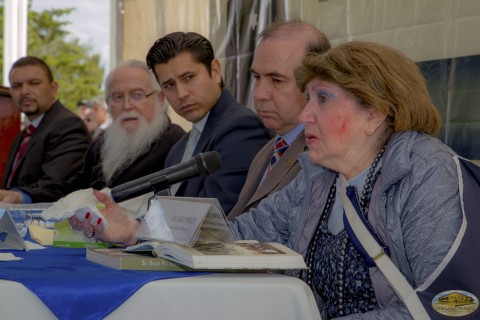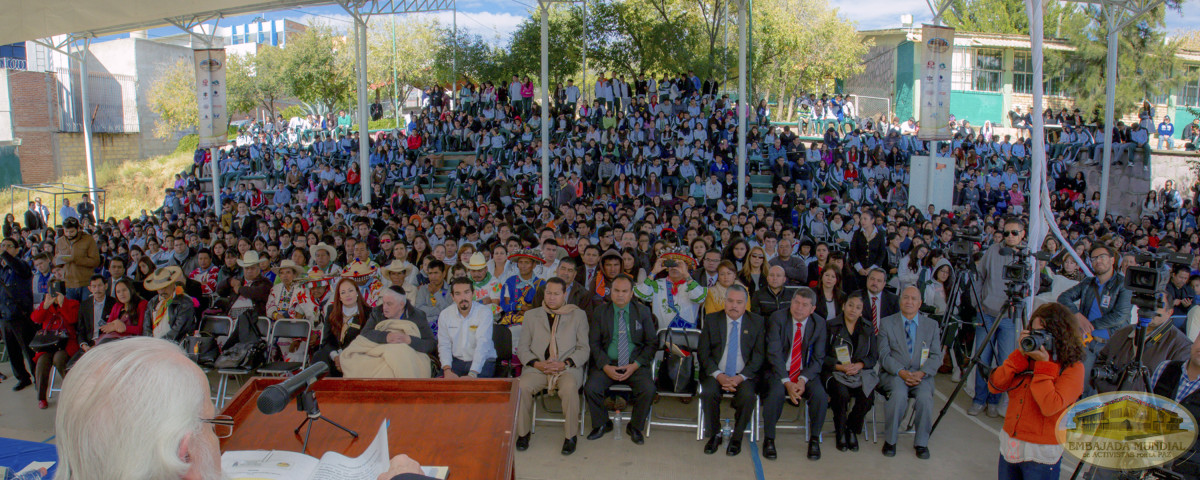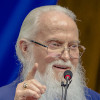Lessons from the past leave breathing teachings to over 1,200 Cobaez students
The history of the Holocaust and other genocides, as a necessary reference for the prevention of future acts of violation of Human Rights.
With honors to the national flag began the Forum "Educating to Remember - The Holocaust, Paradigm of the Genocide", in the School of Bachilleres of the State of Zacatecas (COBAEZ) No.1.
The event was attended by the Holocaust survivor, Mrs. Dolly Hirsch; the executive president of GEAP, William Soto; Francisco González de la Cruz, inter-state president Wirrarika Union, indigenous peoples; a representative of the governor of Zacatecas, Julio César Chávez; and the general director of the 40 campuses of COBAEZ existing in the state of Zacatecas of the school headquarters, Rafael Sánchez Andrade

In his participation, Rafael Sánchez offered the welcome greeting and assured that the Forum is about learning, critical reflection and reasoning about the events that were triggered during World War II.
He added: "It is up to us as an educational institution, to strengthen it through knowledge, through inculcating the values and principles that emanate from you, young people; and which should be translated into the permanent promotion of respect for human rights".
"Remembering the past, learning its lessons, applying them to the present in order to secure the future of our peoples based on justice, truth, harmony and equity, remembering our history and respecting human dignity, will allow us to build a culture of peace".

At the end, he insisted on the need to reorient values in the human being, especially the love towards our neighbor, solidarity and respect for differences. He emphasized that the most important part of the Educative Program Educating to Remember is to contribute towards the formation and development of an integral and critical being that bases its decisions and ethical ideals on human needs and interests, building its own learning, promoting peace.
Dolly Hirsh, a survivor of the genocide that occurred in the concentration camps of World War II, narrated her life story and how she managed to overcome adversity.
As part of its history she stated:
"On April 15, 1945, Bergen-Belsen, we were liberated by the British. The King of Sweden offers survivors shelter and I was in a hospital (where they gave me a fake tongue), where I was hospitalized for seven months. The dress I wore at age seven was a size zero. That dress is now in the Museum of Memory and Tolerance in Mexico. In Sweden, a postman helped us find a family member, a maternal cousin on my mother’s side, in Managua, Nicaragua, and they told us that they came to live in Mexico City."


